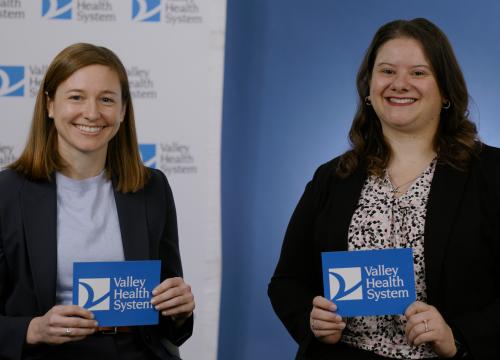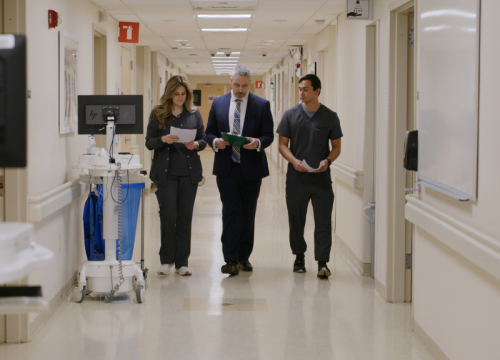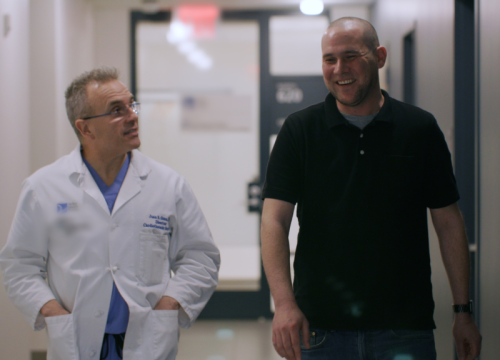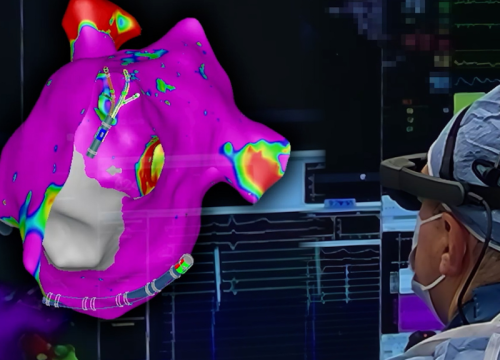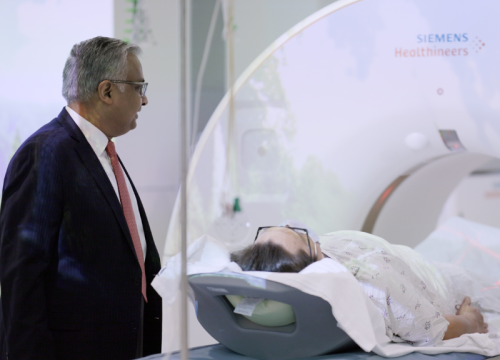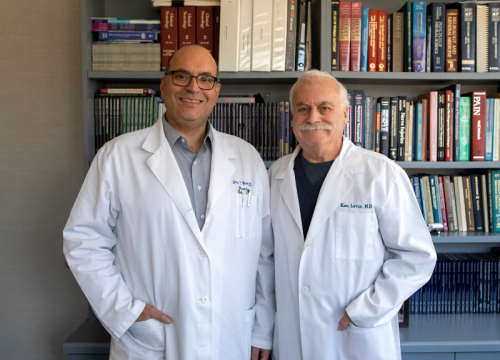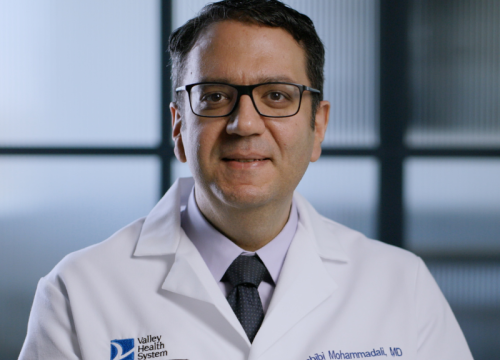
May 20 is International Clinical Trials Day, a day to raise awareness and honor clinical research professionals around the world.
What are clinical trials?
Clinical trials are research studies that evaluate the effectiveness of new medications, therapies, and surgical approaches. Clinical trials are incredibly important as the research gathered plays a critical role in advancing patient outcomes.
Each trial is led by a “principal investigator,” the physician leading the clinical trial at the study site. The Principal Investigator serves as a subject matter expert on the condition being researched. Their goal is to conduct research and gather insights that may result in new treatment opportunities for patients.
A “trial sponsor” also plays a role in the clinical trial. This person, organization, company, or group funds that trial and is responsible for collecting and analyzing all data.
Participants are needed to join the clinical trial and make the research possible. Participants can find out about clinical trials through several ways, including:
- Your doctor may suggest one if they believe you are a good candidate
- A friend or loved one may recommend a trial
- You can search the clinicaltrials.gov database to find a trial you feel is right for you
How do you participate in a clinical trial?
Once you find a clinical trial that you feel is right for you, you will need to determine your eligibility to participate. Criteria for clinical trials differ but may include age, gender, type and stage of disease, previous medical history, and other medical conditions. To do this, you will contact the research site directly using the phone number provided.
If you are eligible, the research team will guide you through the enrollment process. You will receive a detailed explanation of the trial, the requirements, and the associated risks and benefits of participating. The decision to participate in the study is yours alone. If at any time you would like to withdraw from the trial, you may.
What are the associated benefits and risks?
Before participating in a clinical trial, it is important to understand the associated risks and benefits. For some patients, access to clinical trials offers the greatest potential for a dramatic improvement in their clinical outcomes. Benefits can include:
- Access to new research treatments before they are widely available.
- Monitoring, advice, and care by clinical professionals
- Advancing health outcomes for patients with a similar diagnosis
Participation in a clinical trial also presents risks, including:
- May result in increased doctor visits, treatment sessions, and medical attention
- You may experience side effects
- The clinical trial may not effectively treat your condition
Clinical trials and research at Valley
At Valley, our researchers team up with patients and physicians to explore innovative approaches to care and new medical therapies and breakthroughs in the treatment of many conditions.
Valley is committed to responsible research, which includes ensuring that all research initiatives and clinical trials meet rigorous regulatory standards, as well as keeping patients informed on the risks and benefits of participating. Valley is also committed to increasing diversity, equity, and inclusion in our clinical research. We have also been named a top research center in New Jersey by NJBIZ for two years in a row.
The Okonite Research Center serves as Valley’s home for research and clinical trials. This state-of-the-art center provides a centralized, dedicated space for our teams to conduct leading-edge research in the areas of cancer care, gastroenterology, heart care, infectious disease, pulmonology, rheumatology, and neurology.
One aspect of research at Valley is the Clinical Trials and Research Program. This program facilitates research activities throughout Valley Health System with the highest standard of quality. The program coordinates the participation of research investigators, intuitions, sponsors, and patients while following ethical and regulatory standards. Responsibilities include coordination of clinical trial requirements; screening, consenting, enrolling, and communicating with patients; providing regulatory guidance to principal and sub-investigators; and supporting investigator-initiated studies, registries, and chart reviews.
Research at Valley also includes Human Subjects Protection Program, Biorepository and Translational Research, and Lung Cancer Research Laboratory.
To learn more about what clinical trials Valley is currently offering, please visit ValleyHealth.com/ClinicalTrials.





